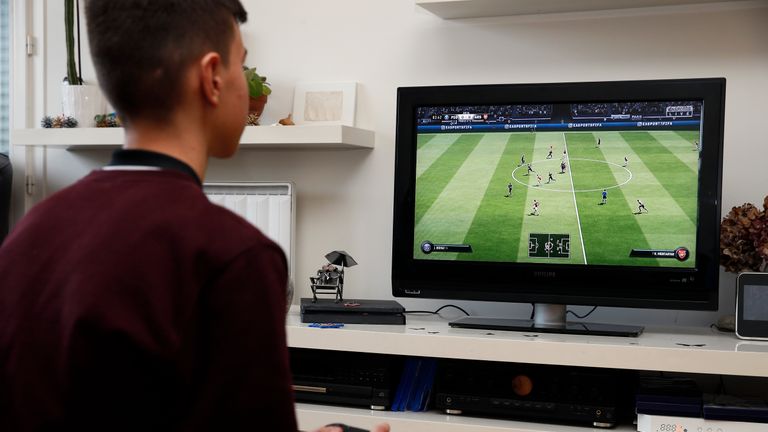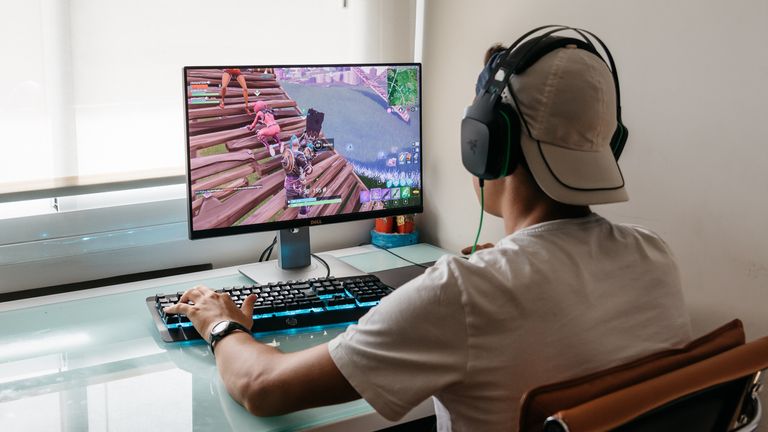The UK’s video games industry has grown to record levels over the past year, and at the fastest rate in more than a decade, according to its trade association.
The Independent Games Developers’ Association (TIGA) said that more than 1,740 jobs were added to the sector, which is now generating tax revenues of £907m annually.
TIGA added that the sector was now contributing £2.2bn to UK GDP.
It called for the government to “retain and enhance Video Games Tax Relief” to encourage investment, which has stalled during the coronavirus crisis.
Speaking to Sky News, the chief executive of games studio Rebellion, Jason Kingsley, said that things were continuing to grow despite the pandemic.
“The good is that everybody is up and working well, mostly from home, but some from the offices where it can be done safely.
“Game productivity is looking good for new titles like Zombie Army 4 and Evil Genius 2 which will be released early next year. Most people seem to be coping well, with video calls and family interruptions being the norm now on calls!”
Mr Kingsley said there was some bad too, including “increased hassle for IT and systems to cope with people working remotely” as well as “equipment costs for those needing us to supply computers for them to use at home”.
Rebellion has just under 450 staff, with 50 new hires being brought on during the pandemic across all parts of the company, from programmers to animators, and games designers to testers.
But Mr Kingsley said there had been “increased difficulty bringing new hires up to speed on how Rebellion works and where they fit in with the team” due to social distancing requirements.
The impact of the pandemic has generally meant physical retail sales are down across the sector, but digital sales have grown substantially.
Mr Kingsley told Sky News: “On balance things are good for us, though managing so much change so fast takes a lot of energy from the senior members of our teams.
“I think people are looking forward to some time off over Christmas.”
Dr Richard Wilson, TIGA’s chief executive, said: “The sector still faces significant challenges, particularly with respect in access to finance and in access to highly skilled people.”
He said that 73% of the UK’s games studios were extremely small, having four or fewer full-time staff, and 40% of studios have closed down over the last decade.
“We should introduce a Video Games Investment Fund and strengthen the UK Games Fund to improve access to finance,” Dr Wilson added.
He called for the government to “strengthen industry-university links, enhance skills and training and enable UK games companies to recruit highly skilled workers from the EU and beyond”.
He also warned that Brexit could deprive UK companies of access to talented European workers, who account for a significant minority of the sector’s employees.
Mr Kingsley added: “As our economy recovers, we need to play to our strengths and invest in those sectors of the economy where we have a comparative advantage like the video games industry.”


